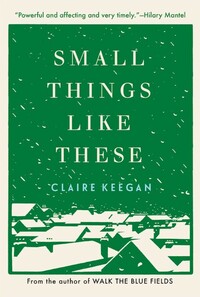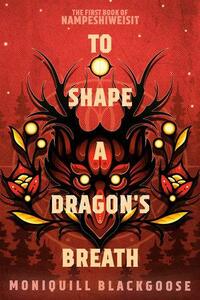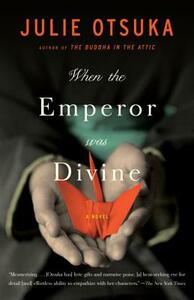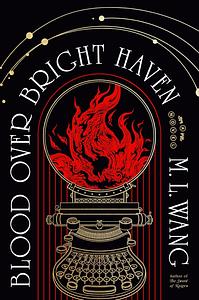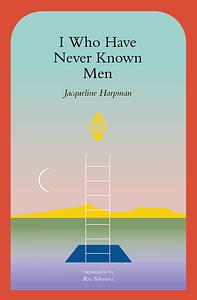You need to sign in or sign up before continuing.
Take a photo of a barcode or cover
slowreaderpeter's Reviews (212)
challenging
reflective
sad
medium-paced
adventurous
emotional
funny
lighthearted
fast-paced
adventurous
hopeful
lighthearted
mysterious
relaxing
medium-paced
Thank you to the author and Solaris publishing for providing me with an ARC of this.
I rather enjoyed this one. It’s set in the same universe as Under Fortunate Stars, Hutchings’ debut novel, but it functions as a standalone. We follow 2 main perspectives, and a third that is more supplementary to the others. The two main ones are a young woman living as a pickpocket on a space station after she’s woken up from cryostasis with no memories of her past, as she’s about to become embroiled in a larger heist; and a young girl growing up on a planet of conservative, religious fanatics as she slowly awakens from the propagandized state she’s grown up under.
This book is primarily about second chances, getting a clean slate, the opportunity to become someone new and shed your old life behind. And it’s also about waking up from religious fanaticism, and how difficult and lonely that can be at times.
My biggest complaint of this book is probably how reliant the first half is on info-dumping and world-building. It definitely feels like it’s more focused on fleshing out the world, the memory loss, the religious order and planet way more than progressing the plot almost at all for a bit. The second half is much more streamlined, and I enjoyed the full book (in large part because I love Hutchings’ voice as a writer). But I do think the first half could have gone a little lighter on the info-dumping.
On the whole, I’d still recommend this, especially for fans of Becky Chambers or perhaps fans of Travis Baldree who also enjoy space opera.
I rather enjoyed this one. It’s set in the same universe as Under Fortunate Stars, Hutchings’ debut novel, but it functions as a standalone. We follow 2 main perspectives, and a third that is more supplementary to the others. The two main ones are a young woman living as a pickpocket on a space station after she’s woken up from cryostasis with no memories of her past, as she’s about to become embroiled in a larger heist; and a young girl growing up on a planet of conservative, religious fanatics as she slowly awakens from the propagandized state she’s grown up under.
This book is primarily about second chances, getting a clean slate, the opportunity to become someone new and shed your old life behind. And it’s also about waking up from religious fanaticism, and how difficult and lonely that can be at times.
My biggest complaint of this book is probably how reliant the first half is on info-dumping and world-building. It definitely feels like it’s more focused on fleshing out the world, the memory loss, the religious order and planet way more than progressing the plot almost at all for a bit. The second half is much more streamlined, and I enjoyed the full book (in large part because I love Hutchings’ voice as a writer). But I do think the first half could have gone a little lighter on the info-dumping.
On the whole, I’d still recommend this, especially for fans of Becky Chambers or perhaps fans of Travis Baldree who also enjoy space opera.
funny
hopeful
informative
lighthearted
reflective
medium-paced
One of the things I love most about this book is the slowness in which it presents itself. It doesn’t feel the need to have every event lead to another massive event, or a snowball effect of plot points of increasing magnitude. Rather, it allows itself to exist in the in between moments, the moments between the major story beats or things of greater “importance.”
We follow Anequs, a 15 year old Indigenous girl, when she becomes the first of her people in 200 years to discover, and then hatch, a dragon egg. Due to the laws of the governing imperial/colonial governments and treaties, she must attend a dragon taming academy, naturally of the colonial variety. And in doing so, she must attempt to learn required knowledge and maintain her sense of self and tradition, and not be overrun by the white colonial culture.
While there are strong ideas and themes throughout this story - racism, resisting colonialism, theft and rebranding of knowledge - it really is the subtle moments that set this one apart for me. It takes its time to allow us to see all of the happenings of society, both the colonial, but especially the Indigenous. Other stories would breeze through these as uninteresting or novelty bits, but they’re almost the most important parts of the story. We see the everyday life things that are of importance to Anequs and her people, how she perceives of life in the colonial academy and cities, the social gatherings, so differently than her peers. It allows us to live in these moments with her, with a greater understanding than just being told how something is or was. It was this that really made the story a comforting read.
That said, I do think a few moments of tension in the main narrative could have been dialed up just a little. The moments were well thought out and I liked the turns they made. I just felt they could have been slightly bigger or heightened. But only slightly.
All-in-all, I found this to be a delightful book, and I am very excited to read the sequel.
We follow Anequs, a 15 year old Indigenous girl, when she becomes the first of her people in 200 years to discover, and then hatch, a dragon egg. Due to the laws of the governing imperial/colonial governments and treaties, she must attend a dragon taming academy, naturally of the colonial variety. And in doing so, she must attempt to learn required knowledge and maintain her sense of self and tradition, and not be overrun by the white colonial culture.
While there are strong ideas and themes throughout this story - racism, resisting colonialism, theft and rebranding of knowledge - it really is the subtle moments that set this one apart for me. It takes its time to allow us to see all of the happenings of society, both the colonial, but especially the Indigenous. Other stories would breeze through these as uninteresting or novelty bits, but they’re almost the most important parts of the story. We see the everyday life things that are of importance to Anequs and her people, how she perceives of life in the colonial academy and cities, the social gatherings, so differently than her peers. It allows us to live in these moments with her, with a greater understanding than just being told how something is or was. It was this that really made the story a comforting read.
That said, I do think a few moments of tension in the main narrative could have been dialed up just a little. The moments were well thought out and I liked the turns they made. I just felt they could have been slightly bigger or heightened. But only slightly.
All-in-all, I found this to be a delightful book, and I am very excited to read the sequel.
challenging
informative
sad
medium-paced
This is a bit difficult to review. Technically, it is written quite well. Very proficient. But stylistically it feels almost clinical, surgical.
We follow a family of three - a mother, her daughter, and her son - in the early 1940s when Japanese-Americans were interned in camps under the Alien Enemies Act. The husband/father was taken some weeks prior to them, and placed in numerous camps elsewhere in the country. The three we follow remain nameless the entire story, leaving them as a sort of stand-in for the Japanese-American experience, representing the diaspora as a whole.
As the months, and then years go by, we see the family slowly start to fray. We see the mother slip into depression, the daughter ages into adolescence, and the son ponders their father and the last way he remembers him. Then we finally see them able to return home, only to fear their neighbors, feeling the need to keep their heads down and not draw attention to themselves as they attempt to further Americanize themselves and shed their Japanese heritage.
In many ways it is a sad and disparaging story, but the clinical nature it is presented in gives an almost dispassionate energy to the story. To me, this made the whole thing feel lacking or less impactful than I might have liked. At the same time, we feel the sadness and depression and detachment of the events without being distracted by a romanticized story. My rating might change at a later time depending on how I think over this in the coming days.
We follow a family of three - a mother, her daughter, and her son - in the early 1940s when Japanese-Americans were interned in camps under the Alien Enemies Act. The husband/father was taken some weeks prior to them, and placed in numerous camps elsewhere in the country. The three we follow remain nameless the entire story, leaving them as a sort of stand-in for the Japanese-American experience, representing the diaspora as a whole.
As the months, and then years go by, we see the family slowly start to fray. We see the mother slip into depression, the daughter ages into adolescence, and the son ponders their father and the last way he remembers him. Then we finally see them able to return home, only to fear their neighbors, feeling the need to keep their heads down and not draw attention to themselves as they attempt to further Americanize themselves and shed their Japanese heritage.
In many ways it is a sad and disparaging story, but the clinical nature it is presented in gives an almost dispassionate energy to the story. To me, this made the whole thing feel lacking or less impactful than I might have liked. At the same time, we feel the sadness and depression and detachment of the events without being distracted by a romanticized story. My rating might change at a later time depending on how I think over this in the coming days.
adventurous
challenging
dark
emotional
mysterious
sad
medium-paced
This was a moderately frustrating read, and I’ll do my best to explain why. All of the ideas, the themes, the notions and points of the story were there and laid out. But the execution of them all was rather messy and muddied the overall reading experience.
It was like I was reading a book with missing information, but not always necessary information. Think of a phrase like “the cat went to the store,” but take out “to.” Simply “the cat went the store.” We have all the information we need to make sense of the idea and point, but something still feels off. Something is missing. That’s sort of what reading this entire story felt like. We have all the information, ideas, and themes, but something in the execution just went missing like the word “to.”
Also, the author had a tendency to get a little lost in metaphor. Or, just too much metaphor and poetic language. At times it was a little difficult to push though.
The Barnes & Noble edition I read came with an epilogue, and in some aspects I like the epilogue better than most of the story. It was just written clearer.
On the whole, I think this is a decent story, with iffy execution. I think to a teenager questioning their gender identity, they would feel very seen and validated, and it could prove very important to them. It has strong themes of found family and whether or not you have to forgive abusive family, which I think it handled quite well.
Overall, a fine but largely underwhelming read.
It was like I was reading a book with missing information, but not always necessary information. Think of a phrase like “the cat went to the store,” but take out “to.” Simply “the cat went the store.” We have all the information we need to make sense of the idea and point, but something still feels off. Something is missing. That’s sort of what reading this entire story felt like. We have all the information, ideas, and themes, but something in the execution just went missing like the word “to.”
Also, the author had a tendency to get a little lost in metaphor. Or, just too much metaphor and poetic language. At times it was a little difficult to push though.
The Barnes & Noble edition I read came with an epilogue, and in some aspects I like the epilogue better than most of the story. It was just written clearer.
On the whole, I think this is a decent story, with iffy execution. I think to a teenager questioning their gender identity, they would feel very seen and validated, and it could prove very important to them. It has strong themes of found family and whether or not you have to forgive abusive family, which I think it handled quite well.
Overall, a fine but largely underwhelming read.
adventurous
challenging
mysterious
medium-paced
Plot or Character Driven:
A mix
I’m not gonna lie, this book is a hard one to review if for no other reason than Chapter 11.
I found this book creative and unique, a very vibes-based book, that gave off a strong air of mystery and intrigue, and of genuine curiosity. Clarke’s writing style was both efficient and elegant, very of the time, and I appreciated the way it managed to be both simplistic and intelligent at the same time.
One of the biggest surprises I had for this book was its inclusion of queer characters or relationship dynamics (even if only briefly mentioned), and of multiple polyamorous relationships. I was not expecting either, to be quite honest, and appreciated the inclusion of both.
As to be expected from works of the time, there was some degree of sexism and minimization of female characters, especially near the beginning section of the book. Though I found their inclusion and purpose to be expanded on as the book went on. On the whole, it still felt rather male-centric and of the time.
What bothered me the most, as mentioned above, was Chapter 11. The first 10 chapters were completely normal, and then Chapter 11 decides to be bizarrely sexist and racist, rather abruptly, for almost 5 straight pages. This coming from a book in the 1960s is not surprising, tragically. But what was surprising was the manner in which it happened. The first 10 chapters were nothing like this, and the rest of the book afterward likewise absent these features. But for some reason Clarke felt the need to include this chapter, for which I will never understand unless he felt a desperate need to put forth his own personal beliefs ardently. Still, I will never not be baffled by the need to break up your own book for the inclusion of a racist and sexist chapter that also has zero bearing on the rest of the story, ever at all.
Without that chapter, I would have likely given the book a 4.25, or there abouts. But with the inclusion of it, I have to knock the rating to a 3.5. I know it is a product of its time, but no other chapter hinges on the information presented in Chapter 11, nothing for the narrative or other characters. And so I can infer nothing else than the purpose was to exclusively be racist and sexist. And part of me feels lenient in making the retraction so minimal.
I found this book creative and unique, a very vibes-based book, that gave off a strong air of mystery and intrigue, and of genuine curiosity. Clarke’s writing style was both efficient and elegant, very of the time, and I appreciated the way it managed to be both simplistic and intelligent at the same time.
One of the biggest surprises I had for this book was its inclusion of queer characters or relationship dynamics (even if only briefly mentioned), and of multiple polyamorous relationships. I was not expecting either, to be quite honest, and appreciated the inclusion of both.
As to be expected from works of the time, there was some degree of sexism and minimization of female characters, especially near the beginning section of the book. Though I found their inclusion and purpose to be expanded on as the book went on. On the whole, it still felt rather male-centric and of the time.
What bothered me the most, as mentioned above, was Chapter 11. The first 10 chapters were completely normal, and then Chapter 11 decides to be bizarrely sexist and racist, rather abruptly, for almost 5 straight pages. This coming from a book in the 1960s is not surprising, tragically. But what was surprising was the manner in which it happened. The first 10 chapters were nothing like this, and the rest of the book afterward likewise absent these features. But for some reason Clarke felt the need to include this chapter, for which I will never understand unless he felt a desperate need to put forth his own personal beliefs ardently. Still, I will never not be baffled by the need to break up your own book for the inclusion of a racist and sexist chapter that also has zero bearing on the rest of the story, ever at all.
Without that chapter, I would have likely given the book a 4.25, or there abouts. But with the inclusion of it, I have to knock the rating to a 3.5. I know it is a product of its time, but no other chapter hinges on the information presented in Chapter 11, nothing for the narrative or other characters. And so I can infer nothing else than the purpose was to exclusively be racist and sexist. And part of me feels lenient in making the retraction so minimal.
adventurous
challenging
emotional
informative
sad
fast-paced
When I first started seeing reviews for Blood Over Bright Haven, everyone kept referring to it, more or less, as feminine rage distilled. And while that’s certainly an important part of this book, it wasn’t the biggest thing I took away from this story.
To me, this story is really about the use of religion as a mechanism of control by an imperialist state. Both over those it has conquered and those it purports to serve and protect. Further, it is really about acknowledging that the struggles we face are ones that affect us all. Capitalism doesn’t just target one group here or one group there, neither does racism or imperialism. The same measures of control that are used against the Caldonnae are the same ones used against the working class Tiranish and the Tiranishwoman.
This book was brilliant. At times it was a little blunt, lacking any subtlety in delivering its message. But that is really what is needed in this day. And Wang’s writing excellent in delivering on these themes and this message. This almost caused me to drop my rating to 4.75, but ultimately I just enjoyed the whole experience and tore through this book so quick, I couldn’t help give it 5 stars.
To me, this story is really about the use of religion as a mechanism of control by an imperialist state. Both over those it has conquered and those it purports to serve and protect. Further, it is really about acknowledging that the struggles we face are ones that affect us all. Capitalism doesn’t just target one group here or one group there, neither does racism or imperialism. The same measures of control that are used against the Caldonnae are the same ones used against the working class Tiranish and the Tiranishwoman.
This book was brilliant. At times it was a little blunt, lacking any subtlety in delivering its message. But that is really what is needed in this day. And Wang’s writing excellent in delivering on these themes and this message. This almost caused me to drop my rating to 4.75, but ultimately I just enjoyed the whole experience and tore through this book so quick, I couldn’t help give it 5 stars.
adventurous
funny
informative
lighthearted
mysterious
reflective
relaxing
medium-paced
This series was a charming delight start to finish.
In retrospect, the ability of Brennan to lay the pieces of the story and the worldbuilding so evenly throughout the story was phenomenal. Genuinely amazing. We are continuously building throughout the series, from large benchmarks to smaller bits and pieces. But it all paces wonderfully and fits together in a way so genuinely satisfying.
I don’t have many more words to say. This series is fun. It is a delightful pastiche, filled with reverence for pulpy adventure serials of the early 20th century. And it always stays true to itself and the voice it has crafted, that of Lady Trent.
In retrospect, the ability of Brennan to lay the pieces of the story and the worldbuilding so evenly throughout the story was phenomenal. Genuinely amazing. We are continuously building throughout the series, from large benchmarks to smaller bits and pieces. But it all paces wonderfully and fits together in a way so genuinely satisfying.
I don’t have many more words to say. This series is fun. It is a delightful pastiche, filled with reverence for pulpy adventure serials of the early 20th century. And it always stays true to itself and the voice it has crafted, that of Lady Trent.
